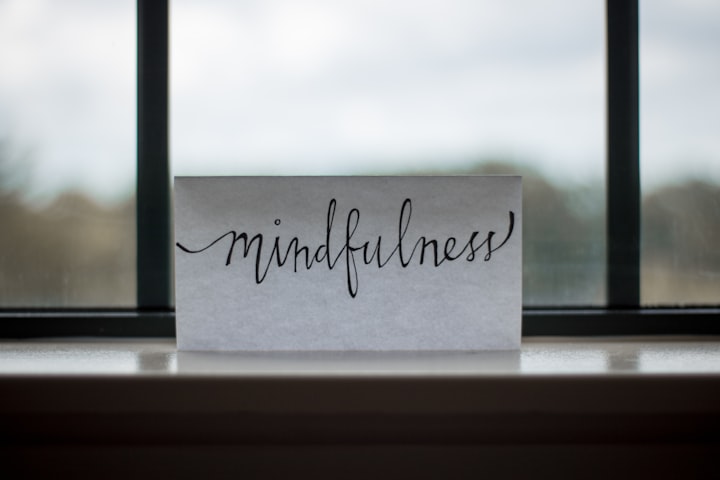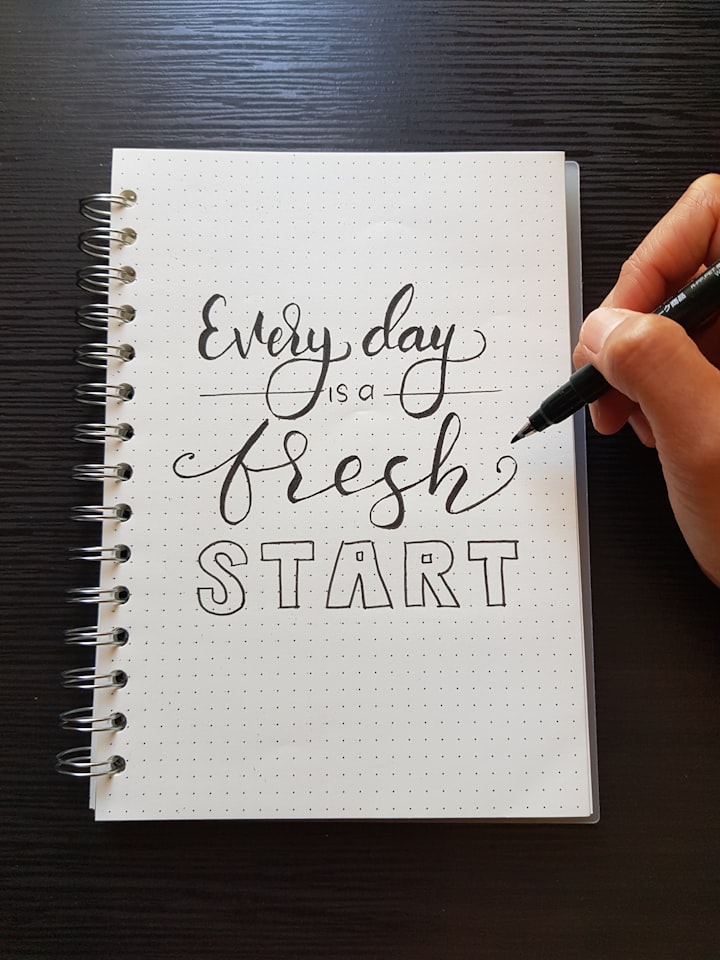
Introduction
In today's fast-paced world, finding moments of calm and self-awareness can be challenging. However, by incorporating mindfulness meditation into your daily routine, you can enhance your self-awareness and motivation. Mindfulness meditation is a powerful practice that allows you to be fully present, observing your thoughts and emotions without judgment. In this article, we will explore what mindfulness meditation is, its benefits, and how it can boost self-awareness and motivation.
What is Mindfulness Meditation?
Mindfulness meditation is a technique derived from ancient Buddhist practices and has gained significant popularity in recent years. It involves focusing your attention on the present moment, and intentionally observing your thoughts, feelings, and sensations without judgment. By cultivating mindfulness, you develop an increased awareness of your thoughts and emotions, allowing you to respond to situations with clarity and intention.
Benefits of Mindfulness Meditation
Mindfulness meditation offers numerous benefits that contribute to overall well-being. It helps reduce stress and anxiety, improves focus and concentration, enhances emotional regulation, and promotes better sleep quality. Additionally, mindfulness meditation has been shown to increase self-compassion, empathy, and resilience, leading to improved relationships and a greater sense of fulfillment.
How Mindfulness Boosts Self-Awareness
One of the key aspects of mindfulness meditation is developing self-awareness. By observing your thoughts, emotions, and bodily sensations, you gain insight into your patterns, triggers, and automatic reactions. This heightened self-awareness enables you to make conscious choices rather than being driven by unconscious habits. It empowers you to understand yourself better, identify your strengths and areas for growth, and make positive changes in your life.
Techniques for Practicing Mindfulness Meditation
There are various techniques for practicing mindfulness meditation, and finding the one that resonates with you is essential. The most common approach is to focus on your breath, using it as an anchor for your attention. As thoughts arise, you acknowledge them without judgment and gently redirect your focus to the breath. Body scan meditation, loving-kindness meditation, and mindful walking are other techniques that can deepen your mindfulness practice.
Cultivating Motivation through Mindfulness
Mindfulness meditation can significantly impact motivation by fostering a sense of purpose and connection to your goals. When you cultivate mindfulness, you become more attuned to your desires, values, and aspirations. This clarity enables you to align your actions with your intentions, fueling your motivation and commitment. Mindfulness also helps you recognize and overcome self-limiting beliefs and self-doubt, empowering you to take steps toward personal growth.
The Connection between Mindfulness and Productivity
Mindfulness and productivity go hand in hand. When you practice mindfulness, you train your mind to stay focused and avoid distractions, leading to improved productivity. By being fully present in your tasks, you can engage in deep work, achieving higher levels of concentration and creativity. Mindfulness also enhances decision-making skills, as it allows you to approach challenges with a clear and calm mind.
Mindfulness Meditation for Stress Reduction
Stress has become an increasingly common issue in modern life, impacting both physical and mental health. Mindfulness meditation has been proven effective in reducing stress levels by activating the relaxation response and promoting a sense of calm. By incorporating mindfulness into your daily routine, you can manage stress more effectively, leading to improved overall well-being.
Mindfulness in Daily Life
While formal meditation sessions are valuable, the true power of mindfulness lies in its integration into daily life. By practicing mindfulness in everyday activities, such as eating, walking, or engaging in conversations, you can cultivate a state of presence and awareness throughout the day. Mindful living allows you to savor simple pleasures, deepen your connections with others, and find joy in the present moment.
Mindfulness Apps and Resources
If you're new to mindfulness meditation, there are several apps and resources available to support your practice. Popular mindfulness apps like Headspace, Calm, and Insight Timer offer guided meditations, mindfulness courses, and tools to track your progress. Additionally, books and podcasts by renowned mindfulness teachers provide valuable insights and guidance for incorporating mindfulness into your life.
Challenges in Practicing Mindfulness
Practicing mindfulness meditation may present challenges, especially in the beginning. Common obstacles include a restless mind, difficulty maintaining consistency, and encountering resistance to facing uncomfortable emotions. It's essential to approach these challenges with patience and self-compassion, understanding that mindfulness is a skill that develops over time.
Tips for Overcoming Challenges
To overcome challenges in mindfulness meditation, try incorporating the following tips:
- Start with short meditation sessions and gradually increase the duration.
- Create a dedicated space for your practice, free from distractions.
- Find an accountability partner or join a meditation group for support.
- Be gentle with yourself and avoid self-judgment when your mind wanders.
- Experiment with different meditation techniques to find what works best for you.
Mindfulness Meditation and Emotional Well-being
Mindfulness meditation has a profound impact on emotional well-being. By developing awareness of your emotions, you can respond to them skillfully, rather than reacting impulsively. Mindfulness allows you to create a space between the emotion and your response, providing an opportunity to choose a more constructive and compassionate approach. Over time, this leads to emotional resilience and a greater sense of emotional balance.
Mindfulness Meditation and Physical Health
Beyond its mental and emotional benefits, mindfulness meditation also positively impacts physical health. Research has shown that regular practice can reduce blood pressure, alleviate chronic pain, strengthen the immune system, and improve overall cardiovascular health. Mindfulness brings a mind-body connection, promoting holistic well-being.
Incorporating Mindfulness into a Routine
To make mindfulness meditation a habit, consider integrating it into your daily routine. Set aside specific times for practice, such as mornings or evenings, and commit to them consistently. You can also find opportunities throughout the day to infuse mindfulness into your activities, such as taking mindful breaks at work or practicing gratitude before bed. By making mindfulness a priority, you will reap its long-term benefits.
Conclusion
Mindfulness meditation offers a transformative approach to boosting self-awareness and motivation. By incorporating mindfulness into your life, you can cultivate a greater sense of presence, deepen your understanding of yourself, and align your actions with your intentions. The benefits extend beyond personal growth, influencing your relationships, productivity, and overall well-being. Embrace mindfulness as a powerful tool for enhancing your life and nurturing your inner potential.
FAQs
Is mindfulness meditation suitable for everyone?
Yes, mindfulness meditation is accessible to people of all ages and backgrounds. However, it's important to find an approach that suits your individual needs and preferences.
How long does it take to see the benefits of mindfulness meditation?
The benefits of mindfulness meditation can be experienced even in the early stages of practice. However, consistent and long-term engagement yields more profound and lasting effects.
Can mindfulness meditation help with sleep difficulties?
Yes, practicing mindfulness before bed can promote relaxation and improve sleep quality. It can help calm a busy mind and create a peaceful transition into sleep.
Can mindfulness meditation replace therapy?
Mindfulness meditation can be a valuable complement to therapy, but it is not a substitute for professional mental health support. If you're experiencing significant challenges, it's essential to seek appropriate help.
How can I integrate mindfulness into a busy schedule?
Even a few minutes of mindfulness practice can make a difference. You can incorporate mindfulness into everyday activities, such as mindful eating or taking mindful walks, to make it more accessible within a busy schedule.






Comments
There are no comments for this story
Be the first to respond and start the conversation.